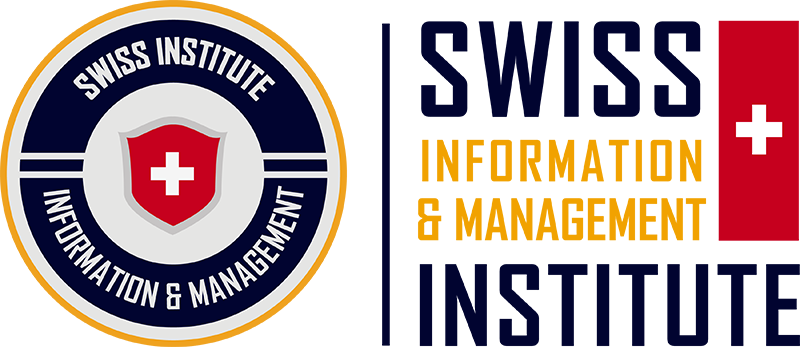What Is Logistics and Supply Chain Management?

Everywhere we go nowadays, we hear of “logistics and supply chain”. Although the concept is no longer new, this business domain is receiving more attention than ever. According to a study conducted by Statista, in 2019, businesses in the U.S spent more than 1.63 trillion USD on logistics to transport goods from one place to another using the supply chain network segment.
So, what exactly is logistics and supply chain management, you might ask? This article will share with you that information and how earning a Logistics and Supply Chain Management degree can help you maximise your future career opportunities.
Some topics we’ll cover including:
- What is Logistics and Supply Chain Management?
- What are the necessary skills of this discipline?
- What can you do with a Logistics and Supply chain management degree?
Let’s delve in tout de suite!
What is Logistics and Supply Chain Management?
Logistics management is a component of supply chain management; it integrates and maintains the flow and storage of goods within an organisation. In simpler words, logistics refer to the management of collected, stored and transported resources to the place of consumption. The management process will involve (1) identifying potential distributors and suppliers, (2) determining their (distributors and suppliers) effectiveness and reach. People who work in logistics are referred to as logisticians.
Meanwhile, supply chain management is the movement coordination and management within a business. It is a much broader concept compared to logistics. A supply chain is a connection and cooperation between suppliers, manufacturers, businesses, retailers, wholesalers and distributors, and more importantly: the consumers. A supply chain process begins when a business receives an order of any kind of product or service they offer and ends when that product or service is successfully delivered to the consumer.
Supply chain management practices include overseeing and directing the production, transportation, and distribution of merchandise and services between their origin and final destination.
Key activities in logistics and supply chain management
Some of the main activities are:
- Purchasing
- Distributing
- Inventory management
- Transportation management
- Material management
- Packaging
- Procurement and purchasing
- Warehouse management
- Etc
Most logistics and supply chain management experts focus on only one or a few of the above-mentioned activities. By learning and building a solid foundation of these activities, you’ll gain a competitive advantage since you understand the entire operating system, especially when you want to advance quickly in your career path.
Why should you consider this discipline?
To gain the knowledge and practical experience needed to start your career in logistics and supply chain, one of the best approaches is to invest in education.
In fact, with the current 50,000 vacancies in logistics and supply chain management. Up to 79 per cent of positions require a bachelor’s degree in this discipline (according to Burning-Glass).
The bachelor of logistics and supply chain management program will provide you with solid industry expertise and knowledge foundation, through which you can help organisations and businesses find efficient ways to navigate the flow of goods from suppliers to consumers.
Some courses that you will likely take while enrolling in a logistics and supply chain program are:
- Financial Accounting and Analysis
- Introduction to Models and Frameworks for Operations Management
- Management and Organisational Behaviour
- Introduction to Business Economics
- Introduction to Production and Operations Management
- Purchasing and E-Procurement
View more here.
When enrolling in the logistics and supply chain management program at the Swiss Institute of Management and Innovation, you will be provided with a broad knowledge base to give you the skills and competencies you need to work in different careers in this business domain.
Career opportunities
Now that you have understood what logistics and supply chain management is, let’s take a closer look at careers related to this field:
Purchasing agent
Some of the primary duties of purchasing agents include:
- Procurement of equipment, parts or services necessary for the operation of production facilities.
- Prepare purchase orders, submit bid proposals, and review requests for goods and services.
- Negotiate and manage contracts with suppliers and representatives.
Logistics analyst
Some of the main duties of logistics analysts include:
- Analyse supply chain processes to identify or recommend optimisations and improvements.
- Maintain database and organise logistics information.
- Provides ongoing analysis in areas such as shipping costs, parts procurement, purchase orders, or delivery processes.
Purchasing manager
Some of the main duties of purchasing managers include:
- Plan and direct the activities of buyers involved in purchasing materials, products, and services.
- Represent the company in contract negotiation and policy formulation with various suppliers.
- Interview and hire employees, oversee employee training and development.
Supply chain manager
Some of the main duties of supply chain managers include:
- Direct and coordinate processes in the supply chain to limit costs and improve accuracy, customer service, and safety in the chain.
- Monitor forecasts and quotas to identify changes and determine their impact on supply chain operations.
- Develop procedures to help coordinate supply chain efforts with different departments, such as sales, marketing, finance, manufacturing, and quality assurance (QA)
Logistician
Some of the main duties of logisticians include:
- Analyse and coordinate the organisation’s logistics functions.
- Develop and maintain a positive relationship with key personnel on the customer side involved in logistics activities.
- Evaluate logistics performance with customers, weighing against goals, benchmarks and service agreements.
Logistics manager
Some of the primary duties of logistics managers include:
- Coordinate an organisation’s planning and warehousing, distribution, forecasting, customer service.
- Manage personnel and systems related to day-to-day logistics operations.
- Coordinate other departments to integrate logistics with business systems or processes.
- Production, planning and expediting clerk
- Organise and expedite the flow of work and materials between parts of the organisation according to the production schedule.
- Distributing production schedules and work orders to different departments.
- Arrange delivery, assembly, or distribution of supplies to expedite material flow.
Storage and distribution manager
Some of the main duties of storage and distribution include:
- Monitor the storage or distribution operations of an establishment or an organization engaged in the storage or distribution of materials or products.
- Interview, select, train and supervise warehouse staff.
- Develop and implement safety practices in the warehouse.
Is working in logistics and supply chain management a potential career?
The answer is YES. With a degree in logistics and supply chain management, you can choose a career path that matches your skills and interests.
If you are ready to pursue a career in this emerging discipline, read more information about our Bachelor of Logistics and Supply Chain Management Program.
Upon completing the program, students will receive a stage-by-stage accreditation from OTHM UK (accredited by Ofqual UK) and a Bachelor of Advanced Studies in Supply Chain Management from the Swiss Institute of Management and Innovation (SIMI).
Source: The Swiss Institute of Management and Innovation
